What Are Co-occurring Disorders?
People who have substance use disorders, as well as mental health disorders, are diagnosed as having co-occurring disorders, or dual disorders. This is also sometimes called a dual diagnosis.
Substance use disorder
A substance use disorder includes
- alcohol or drug abuse
- alcohol or drug dependence
Alcohol or drug abuse is diagnosed when substance use interferes with functioning at work, at school, and in social relationships. It is also diagnosed when substance use creates or worsens a medical condition or when substance use occurs in dangerous situations.
Alcohol or drug dependence is a more severe condition than alcohol or drug abuse. In addition to facing more negative consequences, people with dependence have failed in their attempts to abstain from or control their use of substances. In some cases, physiological dependence may also exist, which is indicated by heightened tolerance (needing more of a substance to get the same effect) and withdrawal (experiencing symptoms such as tremors or nausea when substance use has stopped).
Mental health disorders
Some of the most common mental health disorders found in chemically dependent people include mood- and anxiety disorders. An even higher percentage of people with severe mental illness also have co-occurring substance use disorders. Called severe because of the severity and length of episodes of illness, these mental health disorders include schizophrenia and schizoaffective disorder. (These latter two disorders with their symptoms of hallucinations or delusions are also sometimes called thought disorders.)
Two entwined problems
Co-occurring disorders can sometimes be difficult to diagnose. Symptoms of substance abuse or addiction can mask symptoms of mental illness, and symptoms of mental illness can be confused with symptoms of addiction. People with mental health disorders sometimes do not address their substance use because they don’t believe it is relevant to their problems.
However, some typical patterns do emerge among those with co-occurring disorders:
A worsening of mental health symptoms even while receiving treatment. Those diagnosed with mental health disorders often use substances to feel better. People who are anxious may want something to make them feel calm; people who are depressed may want something to make them feel more animated; people who are fearful of others may want something to make them feel more relaxed and less inhibited; and people who are in psychological pain may want something to make them feel numb.
Using alcohol or other drugs not only fails to repair the mental health disorder but also prevents a person from developing effective coping skills, having satisfying relationships, and feeling comfortable with themselves. Alcohol also interferes with medications prescribed for mental health disorders. In short, drug and alcohol use makes mental health disorders worse.
Alcohol or substance use problems that seem resistant to treatment. People with co-occurring disorders may stop using alcohol or other drugs, but they will find difficulties as the symptoms of their mental health disorders persist. Treatment centers and clinicians and addiction specialists may not be prepared to address both conditions. And some traditional peer recovery groups may insist on abstinence from all drugs – even medications prescribed for mental health disorders. As a result, people with co-occurring disorders find it very difficult to treat their substance-use problems without also treating their mental health disorders.

Our General Health Services
- Medical
- Dental
- Medication Management
- Psychiatric & Behavioral Health
- Evening and Weekend Programming
- Telehealth
- High Complexity Toxicology Labs
- Family Education
- COVID-19 Testing


